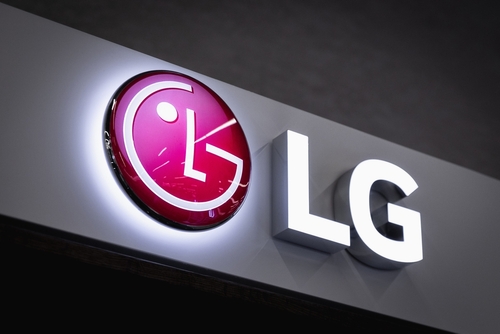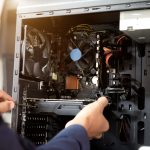LG Electronics Acquires Majority Stake in Bear Robotics for $600M
In a strategic move to solidify its position in the burgeoning robotics and AI sector, LG Electronics has acquired a majority stake in Bear Robotics, a California-based startup revolutionising the restaurant industry with its AI-powered server robots. The deal, valued at approximately $600 million, makes LG the largest shareholder with 51% ownership. This move highlights LG’s aggressive push into robotics as the company bets on the future growth of AI-driven technologies, positioning itself as a key player in both commercial and industrial robotics.
The Deal and Its Impact
LG’s initial investment in Bear Robotics dates back to March 2024 when the South Korean electronics giant committed $60 million to become Bear’s largest shareholder. The recent acquisition of an additional 30% stake is seen as a natural progression of their growing relationship. While the exact valuation of the deal remains undisclosed, a local outlet in Korea suggests that it could be around $180 million, bringing Bear’s overall valuation to $600 million.
This acquisition is more than just a financial transaction for LG. The company is merging Bear Robotics’ expertise in AI technology with its own robotics units, including LG’s CLOi Robots, to create an integrated platform that spans across various applications from hospitality to home robots. LG intends to combine Bear Robotics’ software with its own commercial, industrial, and home robotics efforts, enhancing its ability to control fleets of robots remotely and seamlessly integrate them into real-world scenarios.
Bear Robotics: A Vision for AI in the Restaurant Industry
Founded in 2017 by John Ha, a former Google software engineer turned restaurateur, Bear Robotics began as a solution to the challenges faced by the restaurant industry. Ha was inspired by the difficulties he encountered while running his own restaurant, leading him to develop AI-powered server robots designed to streamline food delivery and customer service. Bear Robotics’ flagship robot, "Servi," is designed to autonomously deliver food and drinks to customers, reducing labour costs and improving operational efficiency in high-demand environments.
The company’s robots have already made their mark in the U.S., South Korea, and Japan, with Bear Robotics’ technology playing an essential role in the delivery logistics of numerous restaurants. Bear’s success in building robots that can operate autonomously and remotely manage fleets has been a key attraction for LG, as the South Korean company aims to harness Bear’s technology to strengthen its own AI-driven robotics capabilities.
LG’s Expanding Presence in Robotics and AI
LG Electronics has been a frontrunner in the robotics space for more than a decade. The company has been researching and developing both software and hardware for robotics, particularly AI and autonomous driving technology. This acquisition is a reflection of LG’s long-term vision to expand its robotics division and take a larger stake in the growing robotics and AI industries.
At the recent CES 2025, LG CEO William Cho underscored the company’s commitment to developing robots that can serve beyond their traditional roles in hospitality and delivery. LG has made considerable strides in both home robotics and commercial robotics, particularly through its LG Home Appliance Solutions division. The company’s vision for robotics stretches across various sectors, with home robots like the Q9 — a self-driving AI home hub with voice recognition and synthesis technology — set to be released later this year.
In addition to its work in domestic robotics, LG’s robotics unit has also played a pivotal role in advancing public-facing robots. In 2017, LG deployed guide robots at Incheon International Airport in South Korea, marking one of the first large-scale commercial uses of robots in the airport industry. This initiative showcased LG’s early adoption of robotics and laid the foundation for the company's future investments in both the commercial and industrial sectors.
The Growing Robotics Market
The robotics industry is rapidly evolving, with AI-driven solutions gaining increasing prominence. This shift is particularly evident in sectors such as hospitality, healthcare, logistics, and manufacturing. LG’s recent investments and strategic acquisitions, including Bear Robotics, position the company to capitalise on this burgeoning market. As businesses and consumers alike look for solutions that enhance efficiency and convenience, robots are becoming a crucial part of the technological landscape.
For LG, the acquisition of Bear Robotics is just one example of how the company plans to diversify its robotics offerings and integrate AI into various industries. As robots become more capable and intelligent, they will undoubtedly play an even greater role in our daily lives — from helping with household tasks to automating industrial operations.
Related: Ati Motors Secures $20 Million to Lead Global Robotics Revolution
The Future of Robotics with LG
Looking ahead, LG’s investment in Bear Robotics signals the company’s intention to lead in the next wave of robotic technology. By integrating Bear Robotics’ cutting-edge AI software with its own hardware and software solutions, LG hopes to create a seamless experience for customers and businesses alike. As LG continues to develop and deploy more advanced robotics, the company is positioning itself as a global leader in the future of AI-powered solutions.
Bear Robotics will remain an important part of LG’s robotics division, with founder John Ha and his team continuing to manage the company. The collaboration between Bear and LG promises to deliver innovative solutions that will shape the future of robotics across multiple industries.
In conclusion, LG Electronics’ acquisition of Bear Robotics demonstrates the company’s commitment to advancing the field of robotics and AI. As the global demand for AI-powered robots continues to grow, LG’s strategic investments in companies like Bear will solidify its position as a key player in the robotics revolution.














